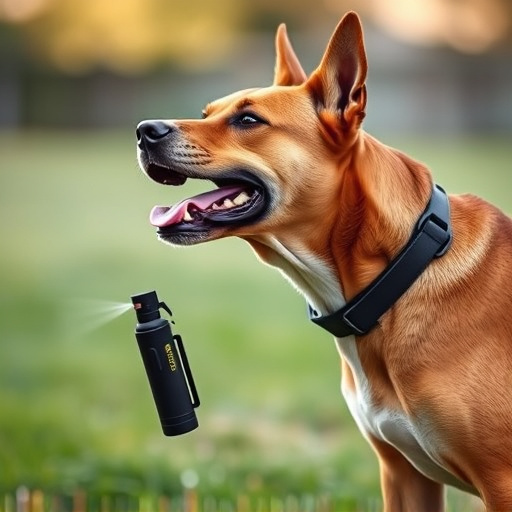Dog pepper spray (capsaicin spray) offers a non-lethal self-defense option against aggressive dogs, temporarily incapacitating them through eye, nose, and respiratory irritation. However, its use is heavily regulated in many US states due to animal welfare concerns and potential misuse. Individuals considering dog pepper spray must understand local laws, obtain necessary permits, and ensure proper training for safe and legal deployment, prioritizing the well-being of both humans and animals. Awareness of Dog Pepper Spray Restricted States is crucial for compliance with stringent regulations governing its use.
“Unleashing Control: Exploring Dog Pepper Spray for Aggressive Canines
In the quest to ensure safety around aggressive dogs, Dog Pepper Spray has emerged as a controversial yet potent tool. This article delves into the world of canine pepper spray, uncovering its benefits and safety precautions. We navigate the legal landscape, highlighting varying restrictions in the US, particularly focusing on Dog Pepper Spray Restricted States. Furthermore, we offer insights into effective use and training methods to ensure responsible ownership and maximize the spray’s potential.”
- Understanding Dog Pepper Spray: Benefits and Safety Measures
- Legal Considerations: Pepper Spray for Dogs in Different States
- Effective Use and Training: Maximizing the Potential of Dog Pepper Spray
Understanding Dog Pepper Spray: Benefits and Safety Measures
Dog pepper spray, also known as capsaicin spray for dogs, is a non-lethal self-defense tool designed to incapacitate an aggressive dog temporarily. It’s a safe and effective alternative to other more harmful deterrents, especially in situations where a dog poses a significant threat without causing any permanent harm. The spray works by irritating the dog’s eyes, nose, and respiratory tract, leading to temporary disorientation and a need to retreat.
While dog pepper spray offers numerous benefits, it’s crucial to understand its restrictions. In many US states, there are specific laws regarding the use of pepper spray, including restrictions on who can possess and deploy it. Some states have banned or severely limited its use due to concerns about animal welfare and potential misuse. Before considering dog pepper spray, individuals should familiarize themselves with local legislation, ensuring they operate within legal boundaries while prioritizing safety measures for both humans and animals involved.
Legal Considerations: Pepper Spray for Dogs in Different States
The legality of using pepper spray on dogs varies significantly across different states in the US, with some areas imposing strict restrictions while others allow its use under certain circumstances. Dog owners or professionals dealing with aggressive canines must be aware of these legal considerations before purchasing or employing any form of pepper spray for dog control.
In many Dog Pepper Spray Restricted States, laws specifically prohibit the use of pepper spray on animals, especially without a valid veterinary prescription. These restrictions are often driven by concerns over animal welfare and potential harm. On the other hand, some states allow the use of pepper spray for dog training or in specific emergency situations, but always under the supervision of licensed professionals or with proper permits. As such, it’s crucial to research and understand local legislation before considering pepper spray as a deterrent for aggressive dog behavior.
Effective Use and Training: Maximizing the Potential of Dog Pepper Spray
Using dog pepper spray effectively requires proper training and a clear understanding of its limitations. It’s crucial to note that dog pepper spray is not a substitute for thorough dog training and management strategies. Instead, it should be seen as a tool for de-escalating potentially dangerous situations when other methods have failed.
In areas where dog pepper spray is legal (remember to check the Dog Pepper Spray Restricted States), it’s essential to train both dogs and owners on its safe and effective use. This includes teaching dogs to recognize and respond appropriately to the spray, as well as training owners on responsible handling and deployment techniques. Regular practice sessions can help ensure that both dog and owner remain calm and safe during actual encounters.
While dog pepper spray offers benefits for managing aggressive canines, it’s crucial to understand its legal status varies across Restricted States. Before deploying this tool, pet owners should thoroughly research local regulations and prioritize safety measures. Proper training ensures effective use, enhancing the bond between owner and dog while ensuring public safety. Remember, responsible ownership includes knowing when and how to utilize innovative solutions like dog pepper spray, but always with caution and within legal boundaries.
